Post
A catch
Save a catch to start your fishing logbook. You will be able to to share it with the community if yo want!
A fishing trip
Post an ad to go fishing with other fishermen
Save a catch to start your fishing logbook. You will be able to to share it with the community if yo want!
Post an ad to go fishing with other fishermen
Share a thought, a question with the community
My favorite cities
×Keep your rods ready for Dryfork in Randolph. The fishing forecast is currently 2.5. The most caught fishes here are the razorback sucker, the pacific lamprey, the pallid sturgeon and the coho salmon. Come try the most famous fishing techniques like the how to catch smelt with square net?, surfcasting, trolling or bass trolling.
Our fishing forecast of Dryfork indicates the best time to go fishing in this city.
The Razorback Sucker
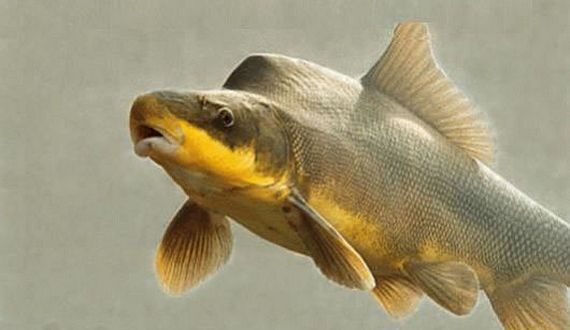
The Razorback Sucker belongs to the Catostomidae family. It is a relatively large catostomidae, reaching more than 91 cm in length and weighing 5 to 6 kg. It has a lifespan of 50 years. It nests from January to June. It cannot be fished because of its status as an endangered species. Razorback suckers are similar to other Catostomidae, with the exception of two main characteristics. The most characteristic features of the razorback sucker are a pronounced edge made of neural and internal bone that extends from the head to the dorsal fins, as well as elongated filaments on the gills. Females have a lower keel. Well-developed filaments are made for zooplankton feeding. It has a long snout, a long rounded head that is ventrally compressed and a ventral mouth with a split lower lip. There is 12 to 15 rays on the dorsal fin and the anal fin has 7 rays. Pelvic and anal fins are longer in males. It has an almost straight lateral line with 68 to 87 scales.
The Razorback Sucker is a famous fish you can catch in Dryfork.The Pacific Lamprey
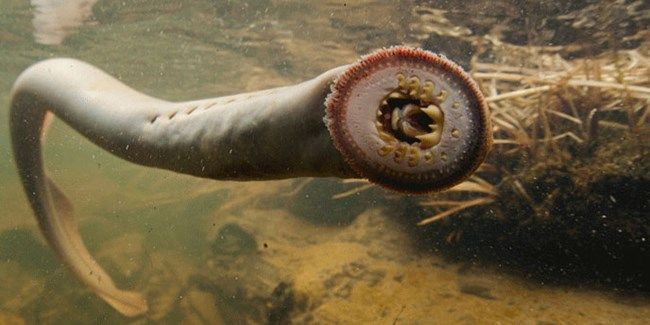
The Pacific Lamprey belongs to the Petromyzontidae family. The adult size of the pacific lamprey can reach 80 cm. It can live up to 5 years. The spawning period depends on the location. It can be caught between July and September when it enters freshwater. The Pacific Lamprey differs from other lamprey species in that it has three large, sharp anterior teeth located on the supraoral bar. Like all lampreys, they have seven breathable pores on each side of their bodies and a large suction disc that acts as a mouth. They are dark blue at the top and silver or white at the bottom. During the breeding season, Pacific lampreys turn reddish brown and the appearance of the sexes begins to differentiate as a pseudo-anal fin develops on the female. Their larvae are difficult to distinguish from those of other lamprey species.
The Pacific Lamprey is a famous fish you can catch in Dryfork.The Pallid Sturgeon
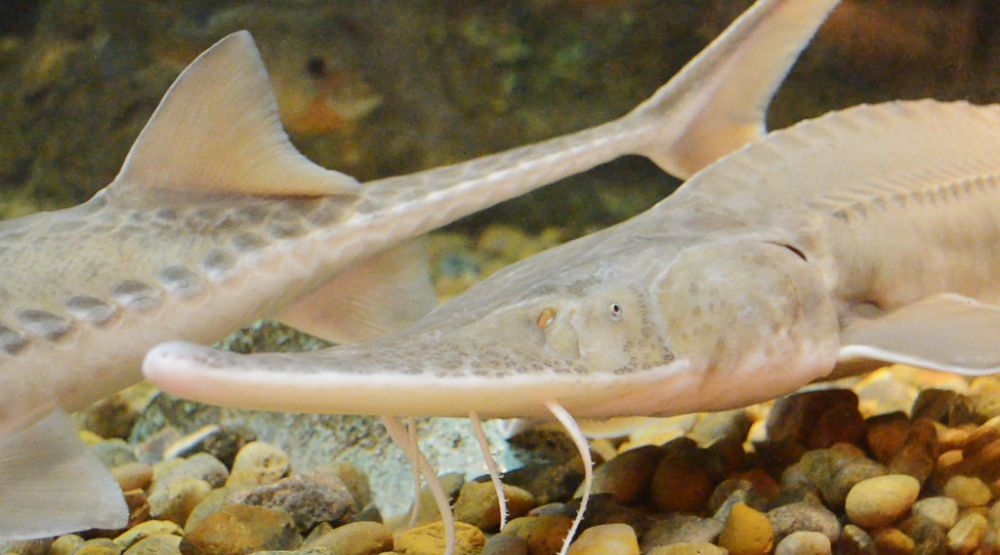
The Pallid Sturgeon belongs to the Acipenseridae family. it measures between 70 and 150 cm long and 39 kg in adulthood. The Pallid Sturgeon takes 15 years to reach maturity, and can live for more than a century. it breeds from May to July. Considered as endangered, it cannot be caught. Like the other Acipenseridae, it is considered as a "living fossil". The Pallid Sturgeon has a characteristic appearance that makes it to be qualified as "primitive" or "dinosaur". It has a pale color, especially in adults who fade with time, with a greyish back and sides. Its caudal fin is heterocercal, with an upper lobe more developed than the lower lobe. Like other sturgeons, the Pallid Sturgeon has no calcified scales or bones, unlike more recent fish species. It has a cartilaginous skeleton with five rows of thick patches that extend along its sides, belly, back and most of its head. These plates are covered by the skin and protect the animal. This cartilage also extends to the back of the fish’s body, between the dorsal fin and the tail. The mouth starts well set back from the tip of the head. Because it has no teeth, it uses this stretchy mouth to suck small fish, shellfish and other foods from the bottom of the river. Like all sturgeons, it has four barbells. We think they have a sensory role in detecting food.
The Pallid Sturgeon is a famous fish you can catch in Dryfork.The Coho Salmon
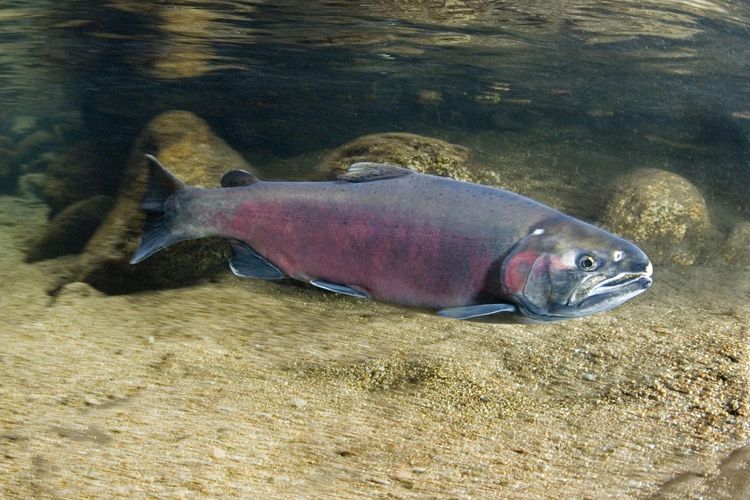
The Coho Salmon belongs to the Salmonidae family. it measures about 71 cm by 5 kg in general. They have a life expectancy of 5 years. They spawn from September to January. They can be captured from July to October. During their ocean phase, coho salmon have silvery sides and a dark blue back. After entering fresh water, they develop bright red flanks, blue-green heads and backs, a dark belly and dark spots on the back. Sexually mature fish develop a pale pink or pink shade along the belly, and males may have a slight arch on the back. Mature adults have a pronounced red skin color with a darker back.
The Coho Salmon is a famous fish you can catch in Dryfork.The Westlope cutthroat trout
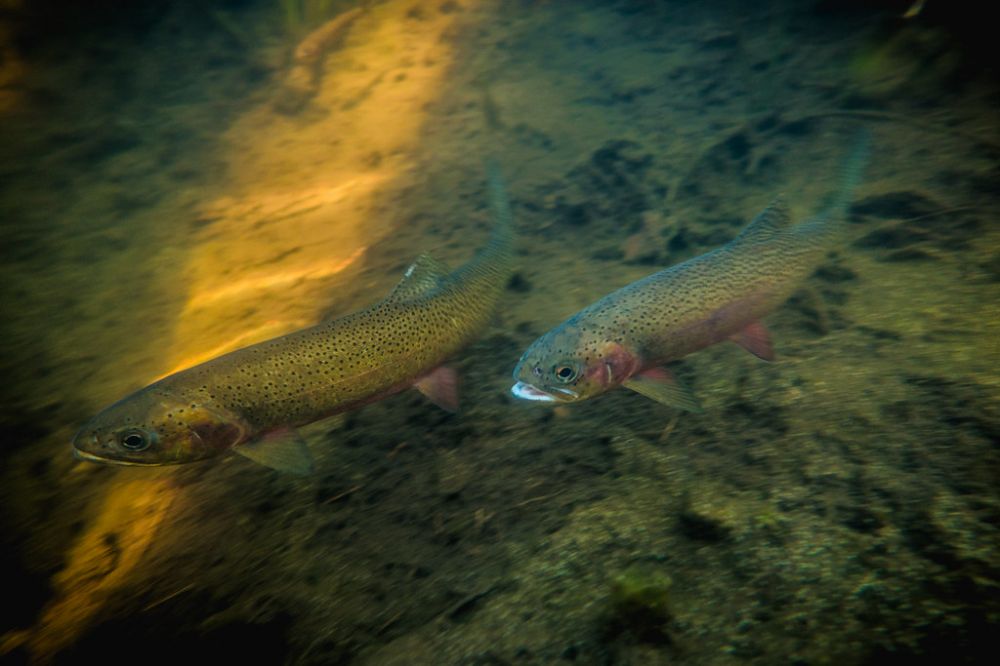
The Westlope cutthroat trout belongs to the Salmonidae Family. The average length of the fish is about 30 cm and rarely exceeds 46 cm. It has an average life span of 2 to 5 years. They breed in the spring. Fishing is prohibited because this fish is endangered. The fish has teeth under the tongue, on the roof of the mouth and on the front of the mouth. The gorge cutting the western slope is common in the waters of lakes and rivers upstream. The skin has small dark freckle-like spots, grouped towards the tail, and is mainly orange in color. They are distinguished from rainbow trout by the red, pink or orange markings under the jaw.
The Westlope cutthroat trout is a famous fish you can catch in Dryfork.Our fishing forecast of Dryfork indicates the best time to go fishing in this city.
Our fishing forecast of Dryfork indicates the best time to go fishing in this city.
Our fishing forecast of Dryfork indicates the best time to go fishing in this city.
